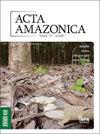车用柴油对红树生长藤和总状筋繁殖体萌发的影响
IF 0.8
4区 环境科学与生态学
Q4 ECOLOGY
引用次数: 0
摘要
红树林生态系统对石油非常敏感,因为石油泄漏会损害红树林植被的发育过程。自2010年代以来,巴西赤道边缘,特别是Pará-Maranhão盆地和亚马孙河口,受到城市活动产生的石油径流和勘探深海钻井采油风险增加的影响。红树林繁殖体的扩散发生在潮汐循环期间,当水中存在张量时可以影响发芽。研究了在水中添加0.5%、1%、1.5%、2%、3%和4%的柴油处理和不添加柴油的对照条件下,柴油对该地区最常见的两种红树物种总形拉筋(Laguncularia racemosa)和海葵(Avicennia germinans)繁殖体萌发的影响。响应变量为发芽率(G%)、平均发芽时间、平均发芽速度和发芽速度指数(GSI)。总状菌繁殖体G%和GSI在对照和各处理间差异显著(G%和GSI <10%(3%处理)。芽生芽的繁殖体具有较强的抗性,处理与对照间的生理指标差异不显著(G% >90%)。结果表明,在萌发阶段,总状芽孢杆菌比萌发芽孢杆菌更容易受到汽车柴油的污染。本文章由计算机程序翻译,如有差异,请以英文原文为准。
Effects of automotive diesel oil on germination of Avicennia germinans and Laguncularia racemosa mangrove propagules
ABSTRACT Mangrove ecosystems are sensitive to oil, as spills can impair developmental processes of mangrove vegetation. Since the 2010s, the Brazilian equatorial margin, more specifically the Pará-Maranhão Basin and the mouth of the Amazonas River, has been affected by oil runoff from urban activities and the increased risk from exploratory deepwater drilling for oil extraction. Dispersal of mangrove propagules occurs during the tidal cycles, when the presence of tensors in the water can affect germination. We analyzed the effects of diesel oil on the germination of propagules of the two most common mangrove species in the region, Laguncularia racemosa and Avicennia germinans, in six treatments of diesel oil in the water (0.5%, 1%, 1.5%, 2%, 3% and 4%) and a diesel-free control. The response variables were germinability (G%), mean germination time, mean germination speed and the germination speed index (GSI). G% and GSI in L. racemosa propagules differed significantly between the control and all treatments (G% and GSI < 10% in the 3% treatment). Propagules of A. germinans were more resistant, and the physiological variables did not differ significantly among treatments and control (G% > 90% in all treatments). Our results indicate that, at the germination stage, L. racemosa was more susceptible than A. germinans to contamination by automotive diesel oil.
求助全文
通过发布文献求助,成功后即可免费获取论文全文。
去求助
来源期刊

Acta Amazonica
PLANT SCIENCESECOLOGYZOO-ECOLOGY
CiteScore
1.70
自引率
0.00%
发文量
34
审稿时长
22 weeks
期刊介绍:
Acta Amzonica is a multidisciplinary, peer-reviewed, open access, free-of-charge scientific journal for research in and about the Amazon region, published since 1971 by the Instituto Nacional de Pesquisas da Amazônia - INPA, in Brazil.
The journal publishes quarterly issues containing articles and short communications in English across a broad range of disciplines, including Agronomy and Forestry, Animal Sciences and Fisheries, Biodiversity and Conservation, Biotechnology, Chemistry and Pharmacology, Environmental Sciences, Food Sciences, Geosciences, Health Sciences, Human and Social Sciences, and Materials Technology.
 求助内容:
求助内容: 应助结果提醒方式:
应助结果提醒方式:


